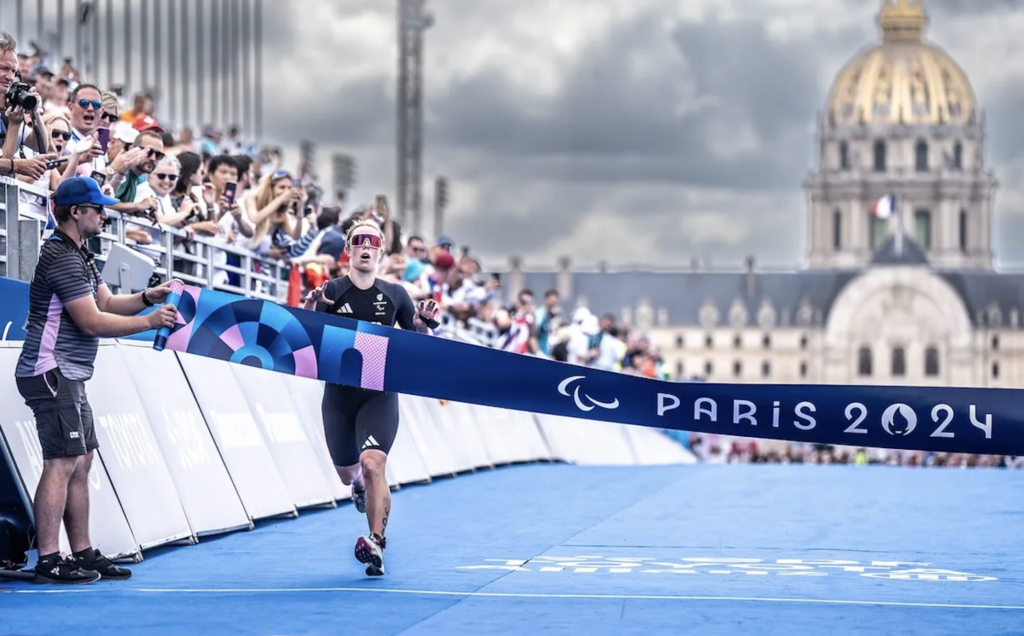By Dave Sheldon
On Monday 2nd September, Megan Richter of Team GB stormed through the Women’s PTS4 field and streets of Paris to win Gold in her debut games as a triathlete! Megan was the first to thank her support team in her post-race interview, acknowledging the incredible work done behind the scenes in getting her on the start line fit and healthy and in a position to strike for Gold!
In a sport and event classification with relatively high injury incidence due to the high training volumes required and asymmetrical loading experienced, injury prevention and management has always been a key focus. After a series of setbacks, most recently a stress fracture in her knee which put stop to her 2023 season before it even got going, Megan’s journey to Gold has not been without its challenges. A long and patient process of building literally from the ground up was spearheaded by strength and conditioning coach, Joe Watkins, facilitated by Nutritionist, Rachel Chesters and the rest of the team at UBSport and British Triathlon.
As you edge closer to a key competition, attention shifts towards specific preparation, which, for summertime in Paris, involves being ready to compete in hot conditions! It’s no secret that endurance performance can be significantly impaired in warmer climates, however, this can be offset through appropriate heat acclimation protocols. Whilst Paris was significantly cooler than Tokyo, it’s always wise to prepare for worse-case-scenario and in the case of heat acclimation, benefits have also been shown to translate into improved performance in temperate conditions.
Megan’s heat prep protocol was drawn up and supervised by GSSPP Applied Physiologist, Dave Sheldon, in collaboration with the coaching and physiology staff at British Triathlon. Tried and tested on numerous occasions over the past Olympic cycle, Megan and her team had confidence in its effectiveness. It involved completing regular 60-90 min training sessions in the environmental chamber at the School of Sport, Exercise and Rehabilitation Sciences (SportExR), supplemented with passive post-exercise sauna bathing as a practical alternative, ensuring Megan could still compete her more intensive and triathlon-specific training alongside this.
“The real challenge with heat acclimation comes with balancing this additional “stress” with an athlete’s training programme and it’s very easy to overdo it. For this reason, we started the intensive heat acclimation block several weeks out from Paris, before entering a maintenance phase involving less frequent heat exposures.”
As in the case for many physiological parameters, it is far easier to maintain than it is to gain heat acclimation status. This approach also buys some time should the athlete experience any complications in the lead into competition, such as illness or injury.
Megan’s success is exemplary of a truly interdisciplinary approach to supporting athletes in fulfilling their athletic potential, at the very highest level.

Photo credit: wout_roosenboom (@by_wout )/World Triathlon

D.Sheldon.1@bham.ac.uk
